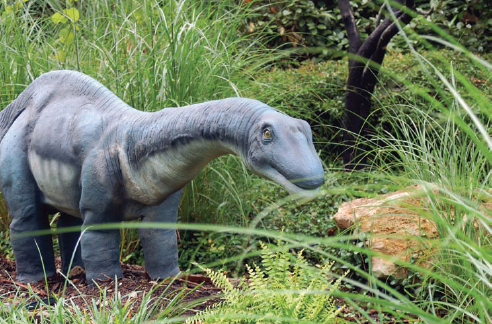Dinosaurs BehaviourDinosaur Babies |
How did the dinosaur eggs hatch? |
Similar to modern birds and reptiles, dinosaur young cracked their way out of eggs when they were ready to enter the world. Also similar to these modern species, certain dinosaur species were apparently too small and weak to leave the nest after hatching. In most cases, the baby dinosaurs probably remained nest-bound for many weeks after they hatched, and had to be fed and tended by the adults. Scientists have deduced this from several nest sites that show the fragments of trampled egg shells and remains that look like regurgitated leaves and berries. Similar to the young of most species, dinosaur hatchlings were no doubt especially susceptible and vulnerable to attacks from predators that hunted around the nesting sites.

Paleontologists can often tell whether the young were independent once they hatched or needed parental care based on the state of the egg fossils found. Some babies may have stayed with their mothers for a long time before they were mature enough to forage for themselves (Big Stock Photo).
